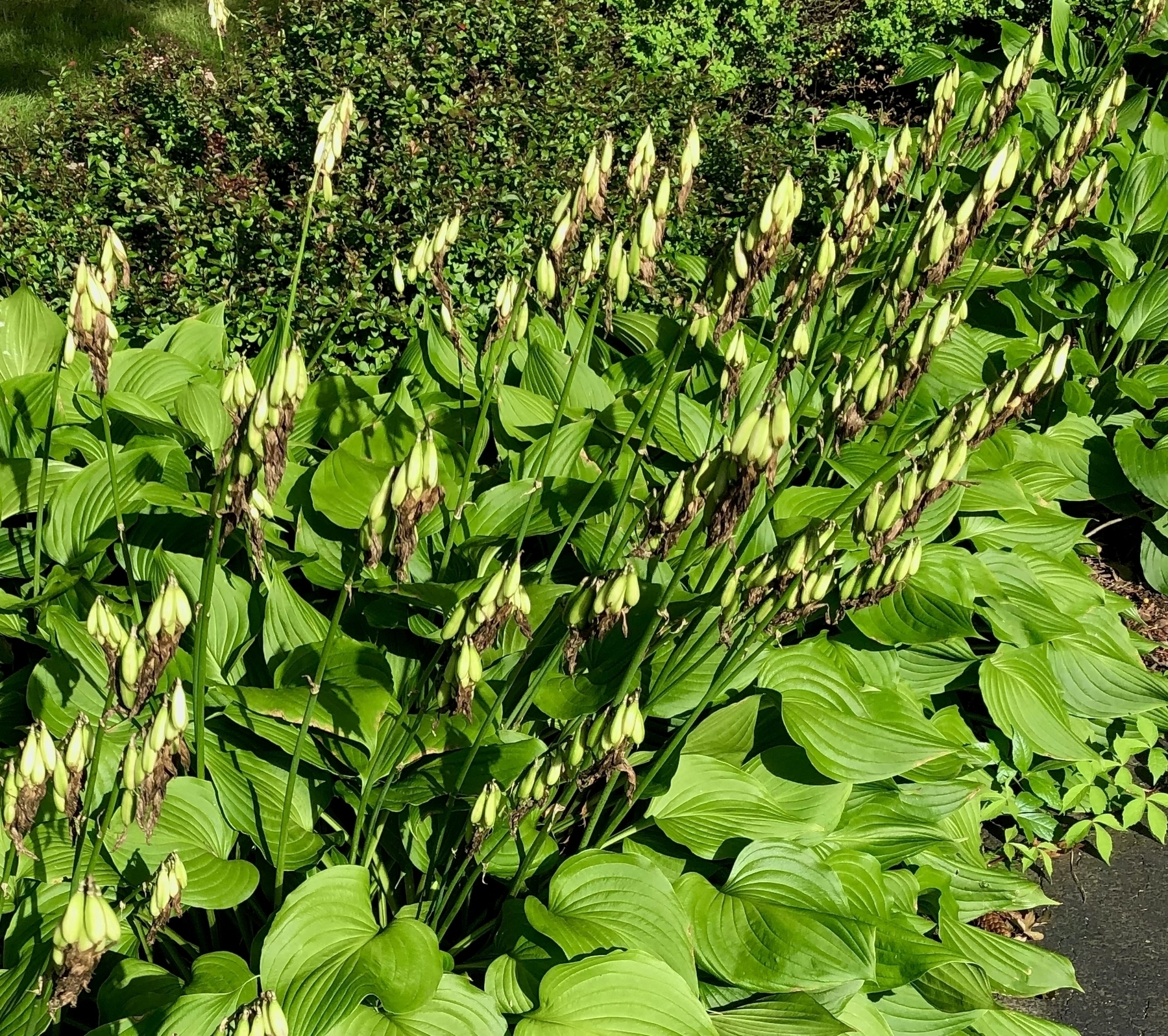28 July 2022
Istijlál, 16 Kalimát (Words), 179 B.E
Seen
The hosta blooms are done for this season. All those seeds that follow will result in more plants next spring. I may have to open up another space for them so they don’t crowd out other plants—like the bigleaf hydrangea I mentioned yesterday…

Done
It rained last night and again this morning so I took advantage of the wet soil to pull up plants growing in the spaces between the stones in the pathways around the raised beds. Except for one corner. Seems as though there’s an established nest of wasps (Vespula vulgaris) from which a number of sentinels come after me whenever I get too close for their comfort. The other day I had several of them sting me before I figured out what was going on. Today, I exercised greater caution and came away unscathed. But I’m going to have to finish early on a cool morning before they get active. Of course, if you don’t see any more posts you’ll know that didn’t go as planned ;-)
Noted
Astral Prospecting on Instagram and Astral Prospecting on Facebook
Marc Bosserman on Instagram Marc Bosserman on Facebook, and Marc Bosserman Music and Musings on YouTube
Quoted
The philosophers of the world are divided into two classes: materialists, who deny the spirit and its immortality, and the divine philosophers, the wise men of God, the true illuminati who believe in the spirit and its continuance hereafter. The ancient philosophers taught that man consists simply of the material elements which compose his cellular structure and that when this composition is disintegrated the life of man becomes extinct. They reasoned that man is body only, and from this elemental composition the organs and their functions, the senses, powers and attributes which characterize man have proceeded, and that these disappear completely with the physical body. This is practically the statement of all the materialists.
The divine philosophers proclaim that the spirit of man is ever-living and eternal, and because of the objections of the materialists, these wise men of God have advanced rational proofs to support the validity of their statement. Inasmuch as the materialistic philosophers deny the Books of God, scriptural demonstration is not evidence to them, and materialistic proofs are necessary. Answering them, the men of divine knowledge have said that all existing phenomena may be resolved into grades or kingdoms, classified progressively as mineral, vegetable, animal and human, each of which possesses its degree of function and intelligence. When we consider the mineral, we find that it exists and is possessed of the power of affinity or combination. The vegetable possesses the qualities of the mineral plus the augmentative virtue or power of growth. It is, therefore, evident that the vegetable kingdom is superior to the mineral. The animal kingdom in turn possesses the qualities of the mineral and vegetable plus the five senses of perception whereof the kingdoms below it are lacking. Likewise, the power of memory inherent in the animal does not exist in the lower kingdoms. 1
- ʻAbduʼl-Bahá. The Promulgation of Universal Peace: Talks Delivered by ʻAbduʼl-Bahá during His Visit to the United States and Canada in 1912. Edited by Howard MacNutt. 2nd ed. Wilmette, Ill: Baháʼí Publishing Trust, 1982, 240. https://www.bahai.org/library/authoritative-texts/abdul-baha/promulgation-universal-peace/17#650985033 [return]